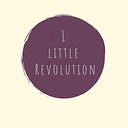Grief and understanding our relationship with it.
#growthdiaries
In a beautiful video The One Subject You Really Need to Study: Your Own Childhood by Alain De Boton explains how one needs to understand one’s childhood to have a better and meaningful life, rather than one which we do have where we keep bouncing across life experiences without fully comprehending why we do what do and what are our real influences.
For me the connection to this video also is particularly important because i have been able to through therapy look at life from a very different perspective.
One of the aspects, that has deeply intrigued me, is how unfathomably incompetent our school system or education and even our familial life is to prepare us at all for life in general. Life isn’t a straight cut study hard-give an exam and get good marks pony ride. It is a roller coaster at the very least. Yet how unprepared we all are to even acknowledge our lives in its absolute complexity.
Being on both sides — someone who hadn’t known personal deep loss of a loved one and now being someone who knows the pain, I feel -what are we even doing avoiding the life experiences altogether!
Grief -is a difficult, real and inevitable reality of our lives. We as humans form ties, with our family, friends, pets and non-living things too. Some of these people or things stay for a long while, some for a short while and then they go…
That is the rule. That is how the world works. And yet seldom do we talk about loss. Almost never. So much so that we have forgotten the vocabulary of loss, we don’t know how to behave around loss, we don’t know how to experience loss and nor be with people who have experienced loss.
My grandma passed away when I was 13ish. One could say that I was grown up enough to understand death, but for me it really was something like hearing something on the news. My relationship with my grandma, in those times when there was no smartphone and video calling, was meeting her once every year. That’s it. I don’t even remember her voice. My mum mourned the pain but I really couldn’t understand what it really meant till I visited my ma’s maternal home.
My grandma’ wasn’t there and there was a certain kind of inexplicable emptiness that surrounded the house. I really didn’t mourn my grandmother’s death because I didn’t even know how to experience it. It was like I was floating through the whole incident and all I could experience out of it was — the bed that dida slept on was empty. I remember her wrinkled brown skin, I remember her white hair tied into a braid, I remember her fingers and the nails that were naturally glossy, I remember the gold chain on her neck. I am not making this up, as I write I can remember all of it. Funny, never thought of this all these years!
I remember experiencing loss again, when K.D Singh Sir, of The BookShop JorBagh passed away. I had worked in The Bookshop for 10 months, I had been around sir, seen him talking to so many guests, playing Jazz and thoughtfully looking at the files with his hand on his mouth. I couldn’t think of The Bookshop without him. I couldn’t think of how it would look without him. I got a job and it was time for me to go and Sir passed away. I didn’t know how to process it. I didn’t know how to connect back to Nini ma’am. I didn’t know what to say. It took seven months of thinking every day to finally turn up one day and meet Nini Ma’am. I took a friend along, because I didn’t have the courage to go alone. When I finally did, I could understand how much pain I had given by not going earlier.
I take time to learn! I sure do, because another time a friend’s father passed away and I couldn’t contact her for months at end.
Now I am on the other side. I am grieving. Not one but three loses. And it hurts. Oh it hurts so bad I can’t begin to explain. It also hurts to see that the people who are the closest to me are unable to come in and be there with me in this moment of grief.
Do we all need to actually experience loss to begin understanding how to be in other, how to have compassion, how just stand by to comfort the people who are in pain?
Sheryl Sandberg in her book Option B: Facing Adversity, Building Resilience, and Finding Joy speaks beautifully about the same. She speaks how people actually need to come in and be there with people who are in grief. Listen to the one grieving and be there with them. Cook something for them, go to their homes and help them if can be…
But before anyone can even begin to create that awareness for the other within oneself, one has to come to standstill, pause and acknowledge loss. That loss is there and even if it isn’t within, it is very much a part of our lives and we will encounter it someday or the other.
What if we explored loss in a classroom setting, students of all ages, sitting in a circle and discussing about what it feels to go through loss. We could explore our feelings through questions like,
These and many such fundamental questions can be discussed in classrooms and in homes to acquaint us all with loss. It would help us to make this a part of our everyday conversation, so that when one of us is hurting, we don’t have to go through the cycle and hurt the pained even more to learn how to be there when in time of need.
